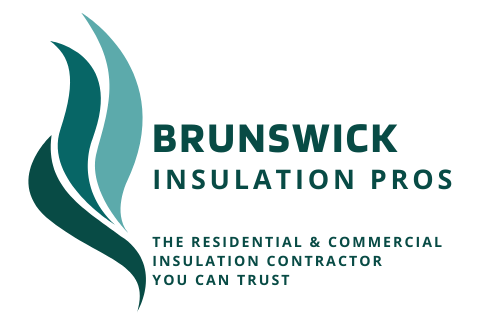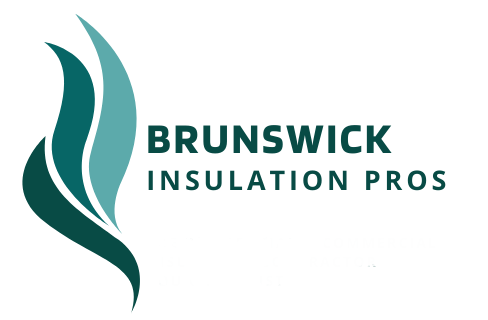How to Choose the Best Insulation for a Residential Property in New Jersey?
A Quick Guide for Selecting the Most Suitable Insulation for Your Home in New Jersey
When it comes to residential insulation, there’s no one-size-fits-all solution. Every home has its own set of needs. For instance, older homes might need insulation that tackles drafts and heat loss, while new homes might benefit more from soundproofing to block out noisy neighborhoods. Budget is another crucial factor. Some materials offer excellent efficiency at a lower cost, while others provide premium performance with a higher upfront investment.
This is why selecting the proper insulation isn’t just about picking what’s familiar or affordable; it’s about finding what works best for your home and your priorities.
With expert guidance from
Brunswick Insulation Pros,
you can make an informed decision that meets your needs now and pays off in the long run.
Types of Insulation for Residential Properties in New Jersey
Here’s a breakdown of the most common insulation options available to New Jersey homeowners so you can make an informed decision.
1. Fiberglass Insulation
Types:
Fiberglass Batts & Blown-in Fiberglass
Use Case: Ideal for attics, walls, basement, and floors.
R-Value: The R-value of Fiberglass ranges from R-2 to R-4 per inch
Budget: Affordable, often one of the least expensive options.
Fiberglass is a staple in home insulation because it’s versatile and cost-effective. Batts are great for easy installation in unfinished walls, floors, and attics, while blown-in fiberglass is excellent for filling hard-to-reach spaces. It’s a great option for New Jersey homeowners looking to balance budget and energy efficiency. The downside? It can lose effectiveness if it gets wet, and fiberglass insulation installation can be tricky for areas with lots of obstructions.
2. Spray Foam Insulation
Types:
Closed Cell Spray Foam & Open Cell Spray Foam
Use Case: Perfect for sealing gaps and adding insulation in hard-to-reach areas.
R-Value:
Closed Cell (R-6.5 to R-7 per inch), Open Cell (R-3.5 to R-4 per inch).
Budget: On the higher end but provides long-term energy savings.
Spray foam insulation is a high-performance option for homes that need an airtight seal. Closed-cell foam provides excellent moisture resistance and a higher R-value, making it ideal for basements and crawl space insulation. In contrast, open-cell foam is suitable for areas like attics. Though it’s pricier, spray foam is a solid investment in long-term energy savings, especially for older homes or areas with extreme weather like New Jersey. However, it does require professional installation.
3. Foam Board Insulation
Types:
Polystyrene Foam Boards & Polyisocyanurate Foam Boards
Use Case:
Suitable for exterior
wall insulation,
foundations, and basements.
R-Value:
Polystyrene (R-4 to R-5 per inch), Polyisocyanurate (R-6 to R-7 per inch).
Budget:
Moderate cost.
Foam board insulation provides excellent thermal resistance and is easy to install in exterior walls and basements. Polystyrene is often used in foundations because of its durability, while polyisocyanurate boards have a higher R-value for areas where extra insulation is needed. It’s a great middle-ground option for homeowners who want effective insulation without breaking the bank. The downside? It can be rigid and difficult to cut to fit into complex spaces.
4. Eco-Friendly Insulation Options
Types: Cellulose Insulation & Mineral Wool Insulation
Use Case:
Ideal for homeowners who want an eco-conscious solution.
R-Value:
Cellulose (R-3.2 to R-3.8 per inch), Mineral Wool (R-3.7 to R-4.2 per inch).
Budget:
Affordable, comparable to fiberglass.
If sustainability is a top priority for you, cellulose and mineral wool offer eco-friendly options. Cellulose is made from recycled paper and is an excellent choice for wall and attic insulation. It’s not only energy-efficient but also helps with soundproofing. Mineral wool is made from natural rocks and provides excellent fire resistance and soundproofing, making it a good fit for homes near busy streets or with fire risk concerns. Both options are cost-effective, but cellulose can settle over time and lose some of its insulating power.
Why Brunswick Insulation Pros is the Right Choice for Your Home Insulations Needs?
When it comes to insulation, you need a team that understands New Jersey’s unique climate and the challenges your home faces year-round. Brunswick Insulation Pros is precisely that team:
- We Offer Customized Insulation Plans
- We Have Experienced Insulation Experts
- We Focus on Bringing Long-Term Value to Our Customers
- We Provide Transparent Pricing and Discount Options
- Our Team Provides Quick Insulation Installation
- We Clean the Property After the Job and Remove AnyTrash
Ready to upgrade your home insulation? Let’s make your home energy-efficient and cozy. Call Brunswick Insulation Pros at
(908) 948-8083
or fill out our
brief contact form
for free estimates.


